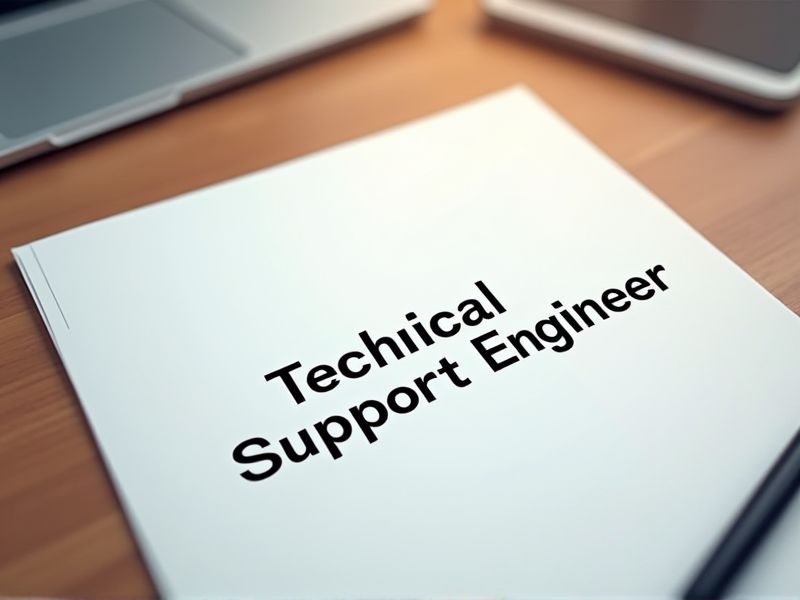
A Technical Support Engineer often tackles complex technical issues, necessitating a profound understanding of various systems and software. Certifications provide the structured knowledge and skills critical for efficiently diagnosing and resolving technological problems. They also validate expertise, enhancing credibility and competitive edge in the job market. Some important certifications you may need for a Technical Support Engineer include CompTIA A+, Microsoft Certified: Azure Fundamentals, and Cisco Certified Network Associate (CCNA).
CompTIA A+ Certification
The CompTIA A+ Certification validates a foundational understanding of computer hardware and software, which is essential for a Technical Support Engineer to troubleshoot effectively. Employers often seek candidates with recognized certifications, and having CompTIA A+ increases job prospects in the tech industry. This certification covers essential skills like network configuration and operating system management, directly applicable to daily technical support tasks. By demonstrating competence through the CompTIA A+, engineers can instill confidence in customers and employers regarding their technical capabilities.
CompTIA Network+ Certification
Obtaining the CompTIA Network+ Certification equips a Technical Support Engineer with foundational networking knowledge, essential for diagnosing and resolving network-related issues. This certification ensures a standardized understanding of network infrastructure, which can enhance the efficiency of troubleshooting processes. It is often regarded as a benchmark by employers, indicating an engineer's capability and credibility in handling complex networking tasks. A certified engineer is likely to stay updated with evolving network technologies, thereby increasing their adaptability in fast-paced IT environments.
CompTIA Security+ Certification
Obtaining the CompTIA Security+ certification validates a technical support engineer's foundational understanding of cybersecurity principles. This certification equips them with critical skills in identifying and addressing security threats, which is essential for safeguarding sensitive data within an organization. It also enhances their capability to ensure compliance with security regulations and industry standards. Employers value the certification as it signifies a commitment to upholding security measures, thereby boosting professional credibility and career advancement opportunities.
ITIL Foundation Certification
ITIL Foundation Certification provides Technical Support Engineers with a structured approach to IT service management, leading to improved service delivery. Knowledge of ITIL practices enables engineers to align with industry standards, enhancing process efficiency. Employers often require ITIL certification as it indicates a candidate's familiarity with best practices and commitment to quality service. Certification also boosts an engineer's career prospects by expanding their understanding of IT service lifecycle management.
Microsoft Certified: Modern Desktop Administrator Associate
The Microsoft Certified: Modern Desktop Administrator Associate certification equips a Technical Support Engineer with advanced skills in configuring, securing, and deploying Windows devices. This expertise ensures efficient troubleshooting and resolution of issues, directly enhancing the quality of technical support provided. Companies implementing Windows environments require knowledgeable professionals to maintain system integrity and manage updates, which this certification addresses. Obtaining this certification demonstrates a commitment to staying current with Microsoft's evolving technologies, increasing employability and job performance.
Cisco Certified Network Associate (CCNA)
Technical Support Engineers often encounter complex network issues, and obtaining a Cisco Certified Network Associate (CCNA) provides the foundational knowledge to understand and troubleshoot Cisco networking equipment effectively. CCNA certification enhances problem-solving skills by teaching network fundamentals, IP connectivity, and security, which are crucial in resolving customer issues efficiently. Employers value CCNA as it validates a comprehensive skill set, making certified engineers more attractive candidates for technical positions. This certification also keeps engineers updated on the latest networking technologies, ensuring they can support cutting-edge systems and equipment in today's evolving tech landscape.
Linux Professional Institute Certification (LPIC-1)
Achieving the Linux Professional Institute Certification (LPIC-1) equips a Technical Support Engineer with fundamental skills in system administration, making them proficient in managing and troubleshooting Linux environments. Organizations rely on certified professionals to ensure their systems run smoothly, reducing operational risks linked to maintenance and downtime. With LPIC-1, engineers gain validation of their ability to handle mixed technology environments, which increases their employability in industries that utilize open-source solutions. The certification acts as a competitive differentiator, as it assures employers of the engineer's practical knowledge in handling real-world Linux-based issues.
HDI Support Center Analyst Certification
The HDI Support Center Analyst Certification equips Technical Support Engineers with standardized skills and knowledge, leading to improved problem-solving capabilities. Certification enhances credibility and trust with customers, resulting in increased customer satisfaction. It provides industry-recognized frameworks and methodologies, which help in maintaining consistency and efficiency in handling technical issues. As technology evolves, the certification ensures that Technical Support Engineers remain updated with current best practices and trends in customer support.
Microsoft Certified: Windows Client
Possessing the Microsoft Certified: Windows Client certification equips Technical Support Engineers with comprehensive knowledge of Windows operating systems, leading to improved problem-solving capabilities. This certification validates an individual's expertise in configuring, managing, and maintaining Windows environments, which directly impacts efficient issue resolution. Employers often recognize this certification as a benchmark for technical proficiency, increasing job opportunities and career advancement for certified engineers. Enhanced credibility and client trust result from the demonstrated commitment to maintaining up-to-date skills in evolving Windows technologies.
Google IT Support Professional Certificate
The Google IT Support Professional Certificate provides foundational skills essential for a Technical Support Engineer, focusing on troubleshooting, networking, and system administration. This certification helps bridge the gap for individuals lacking formal education in IT but seeking entry-level tech roles. Employers value candidates with industry-recognized credentials, often leading to increased job opportunities and higher salary potential. Training in real-world scenarios equips learners to face on-the-job challenges efficiently.
Summary
You, as a Technical Support Engineer with new certifications, can anticipate enhanced problem-solving capabilities and a deeper technical understanding. This often leads to increased confidence when handling complex customer issues. Employers may recognize your qualifications as a signal of your dedication and competence, potentially resulting in career advancement. Ultimately, your improved skill set can enhance customer satisfaction and streamline support operations.
